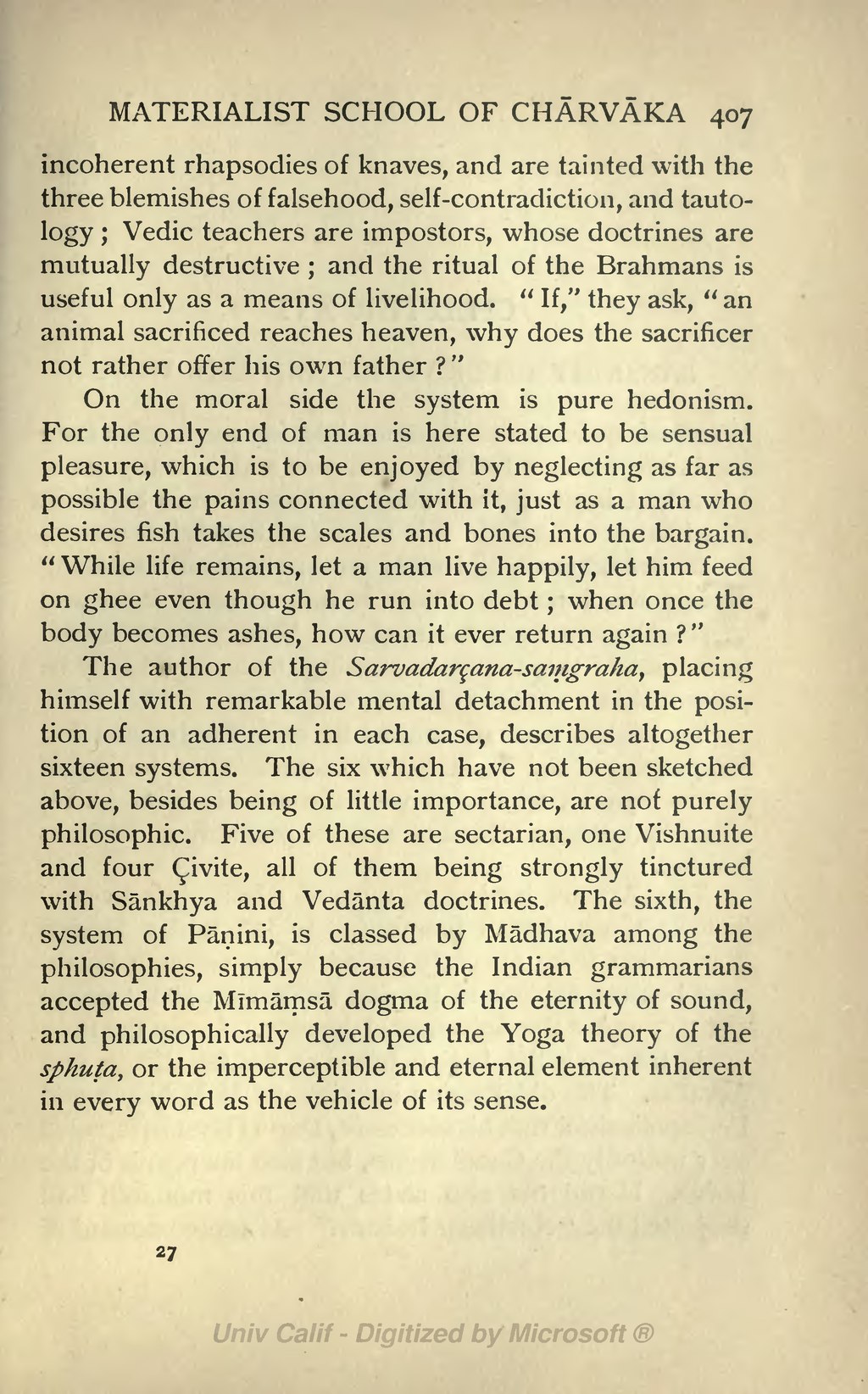incoherent rhapsodies of knaves, and are tainted with the three blemishes of falsehood, self-contradiction, and tautology; Vedic teachers are impostors, whose doctrines are mutually destructive; and the ritual of the Brahmans is useful only as a means of livelihood. "If," they ask, "an animal sacrificed reaches heaven, why does the sacrificer not rather offer his own father?"
On the moral side the system is pure hedonism. For the only end of man is here stated to be sensual pleasure, which is to be enjoyed by neglecting as far as possible the pains connected with it, just as a man who desires fish takes the scales and bones into the bargain. "While life remains, let a man live happily, let him feed on ghee even though he run into debt; when once the body becomes ashes, how can it ever return again?"
The author of the Sarvadarçana-saṃgraha, placing himself with remarkable mental detachment in the position of an adherent in each case, describes altogether sixteen systems. The six which have not been sketched above, besides being of little importance, are not purely philosophic. Five of these are sectarian, one Vishnuite and four Çivite, all of them being strongly tinctured with Sānkhya and Vedānta doctrines. The sixth, the system of Pāṇini, is classed by Mādhava among the philosophies, simply because the Indian grammarians accepted the Mīmāṃsā dogma of the eternity of sound, and philosophically developed the Yoga theory of the sphuṭa, or the imperceptible and eternal element inherent in every word as the vehicle of its sense.
